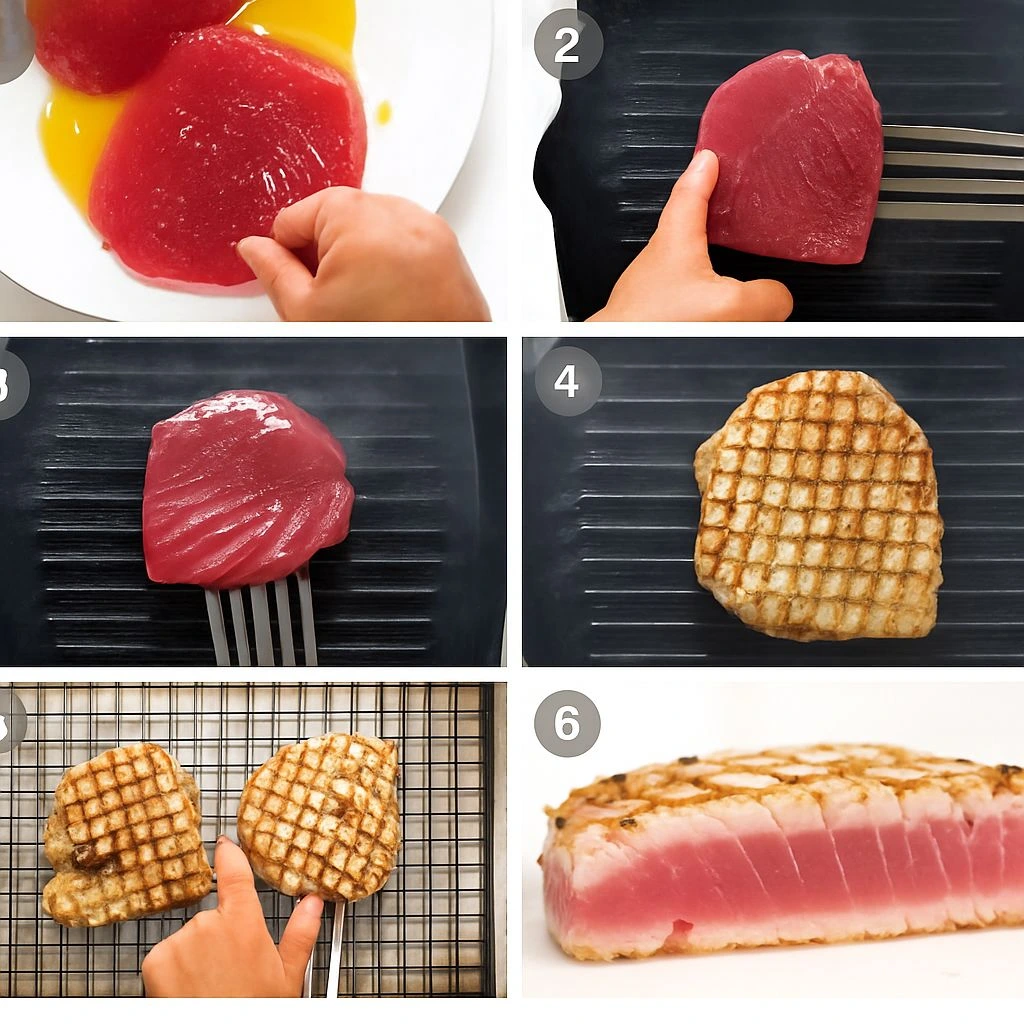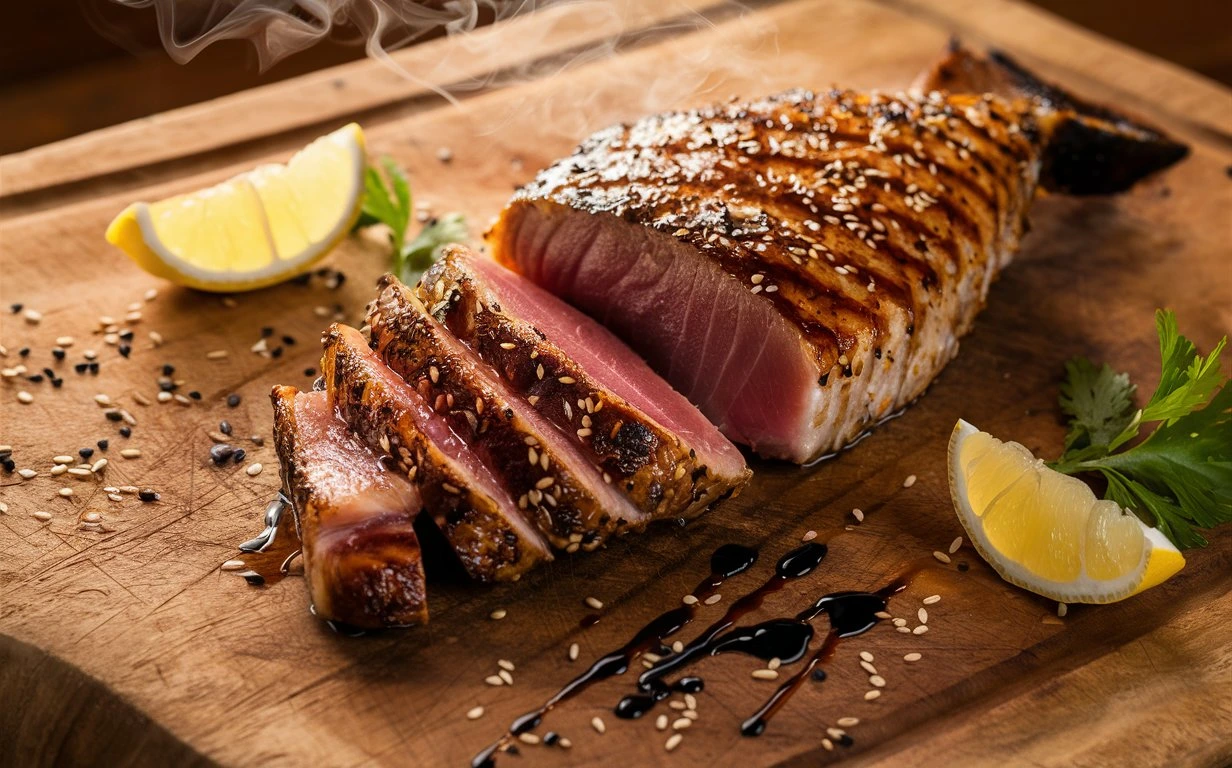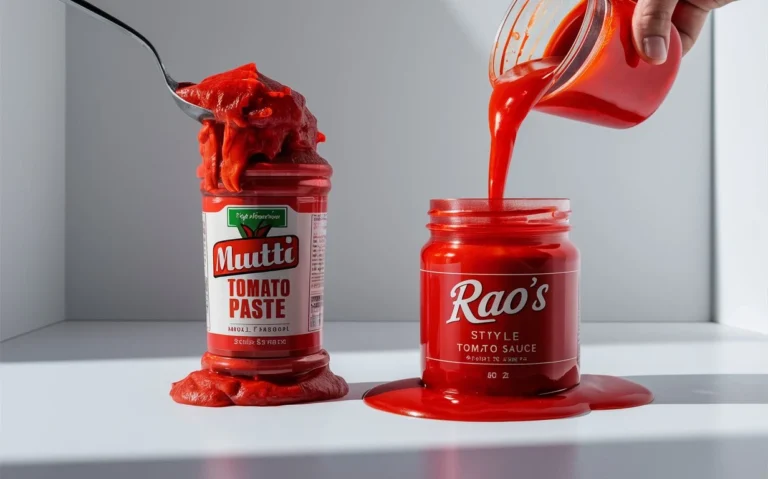How to Cook Tuna Steak Perfectly: Juicy, Restaurant-Style
Cooking tuna steak might seem tricky, but with the right tips, you’ll master this healthy, flavorful dish like a pro. Let’s dive into the secrets of searing, seasoning, and serving tuna steaks that even beginners can nail!
Why Tuna Steak is a Kitchen Superstar
Tuna steak is lean, protein-packed, and cooks faster than most meats. Its firm texture holds up to grilling, pan-searing, or baking. Plus, it’s rich in omega-3 fatty acids, which boost heart health.
Key Stats:
- 100g of tuna steak = 25g protein, 1g fat.
- Over 60% of chefs recommend searing for best flavor.
- Japan consumes 80% of the world’s bluefin tuna.
Choosing the Perfect Tuna Steak
Pick sushi-grade tuna for safety if cooking rare. Look for bright red or pink flesh with no fishy odor. Thick cuts (1-1.5 inches) stay juicy.
Pro Tip:
Frozen tuna? Thaw it in the fridge overnight. Pat dry with paper towels to prevent steaming.
Prepping Your Tuna Steak Like a Pro
- Season Simply: Salt, pepper, and olive oil work wonders.
- Marinate Smartly: Use soy sauce, ginger, or citrus for 15-30 minutes (no longer—acid “cooks” the fish!).
- Room Temp Rule: Let the steak sit out 10 minutes before cooking.
Fun Fact:
Tuna swims up to 43 mph—so its muscles are dense, making steaks meatier than other fish!
How to Make Tuna Steak Recipe:

Ingredients You’ll Need
- 1 sushi-grade tuna steak (1–1.5 inches thick)
- 1 tbsp olive oil (or sesame oil for Asian flavors)
- Salt + black pepper (basic but essential!)
- Optional extras: Soy sauce, ginger, garlic, lemon zest, or sesame seeds.
Why Sushi-Grade?
Sushi-grade tuna is frozen to kill parasites, making it safe for rare cooking. Always check labels!
Step-by-Step Tuna Steak Recipe
1. Prep Like a Pro
- Thaw Safely: If frozen, thaw overnight in the fridge.
- Pat Dry: Use paper towels to remove moisture—this ensures a crispy crust.
- Season: Rub with oil, salt, and pepper. Add spices 5 minutes before cooking.
Pro Tip: Want bold flavor? Marinate in soy sauce + minced ginger for 15 minutes (no longer—it’ll “cook” the fish!).
Pan-Searing (Most Popular):
- Heat skillet on high. Add oil.
- Cook 1-2 minutes per side for rare.
- Crusted sesame seeds add crunch!
Grilling:
- Oil the grill grates.
- 2-3 minutes per side on medium-high heat.
Baking:
- Rarely used, but bake at 400°F for 8-10 minutes if preferred.
Q: How long to cook tuna steak?
Ans: For rare doneness, cook 1-2 minutes per side in a hot pan. Aim for an internal temperature of 125°F.
Common Mistakes to Avoid
Did You Know?
Tuna’s red flesh comes from myoglobin, a protein that stores oxygen for long swims!
Serving Ideas to Wow Your Guests
Final Pro Tip:
Use a meat thermometer—125°F is perfect for rare, 140°F for well-done (but stick to rare for best taste!).
FAQs:
Q: Can I eat tuna steak raw?
A: Only if it’s sushi-grade. Always check labels!
Q: Why is my tuna steak tough?
A: Overcooking or slicing with the grain causes chewiness.
Q: Are tuna steaks healthy to eat?
A: Yes! Tuna steaks are protein bombs (25g per 100g) loaded with heart-healthy omega-3s and vitamins (B12, selenium). But stick to 2–3 servings/week to avoid mercury risks. Grill or sear with olive oil—skip heavy sauces—for a lean, nutrient-packed meal.
Ready to Cook?
Tuna steak is a quick, nutritious meal that’s hard to mess up. Follow these steps, avoid overcooking, and you’ll impress even picky eaters. Grab your skillet, and let’s get searing!
Final Stat:
Americans eat over 1 billion pounds of tuna yearly—time to make yours count!







2 Comments